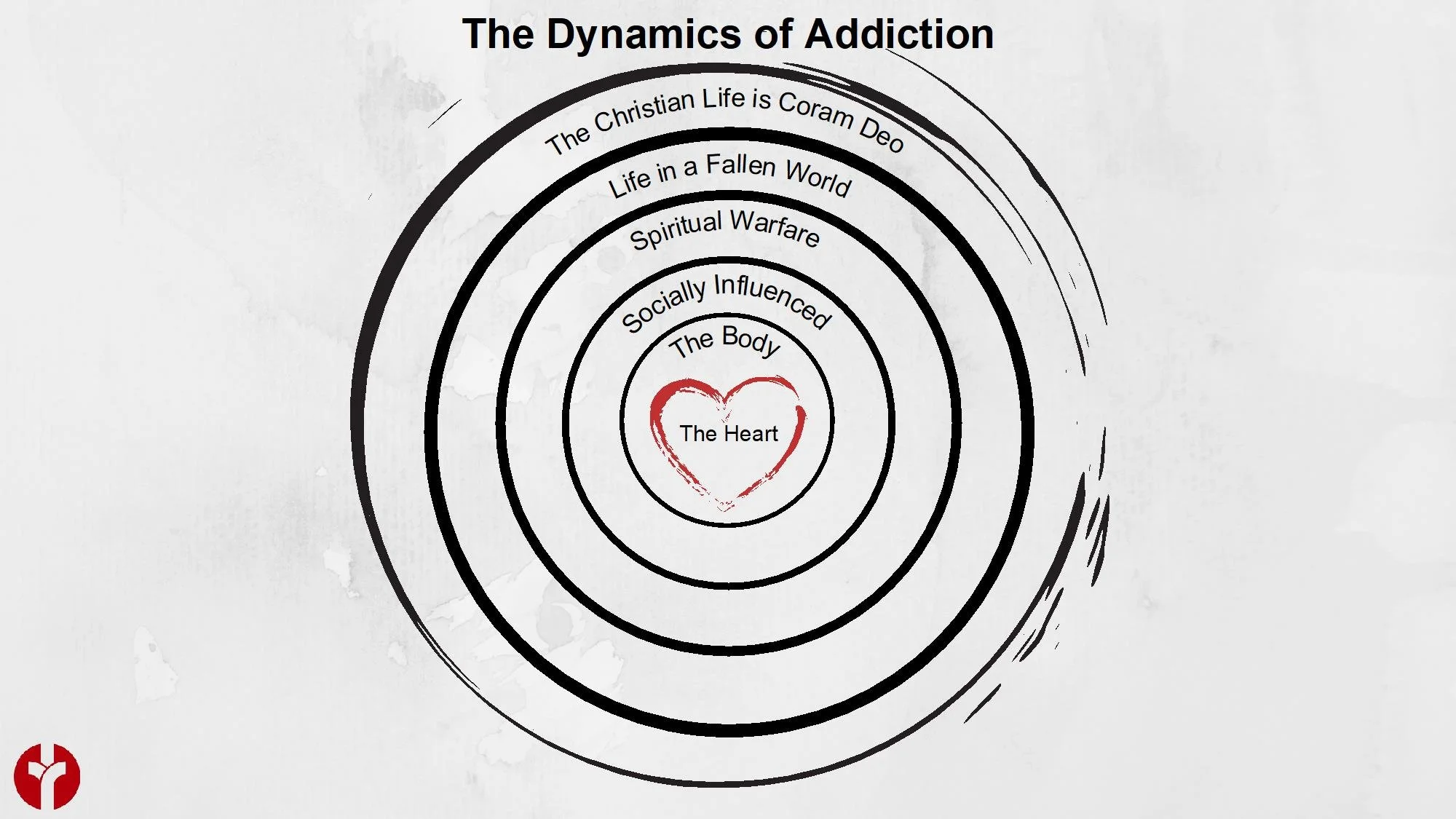WHAT IS ADDICTION?
In this teaching, Program Director Justin Lakemacher helps us understand addiction biblically as a worship disorder rooted in the heart while exploring the complex dynamics of addiction, the experience of the addict, and the hope of the gospel.
This illustration captures the dynamics of addiction from a biblical perspective. A biblical worldview considers and engages the complexities of addiction as they relate to the experience and heart of an addict.
The Christian Life is Coram Deo - The phrase ‘Coram Deo’ is Latin for ‘in the presence of God.’ The addict lives before the face of God, the one who made all things (Genesis 1-2) and who governs and sustains all things (Colossians 1:16-17; Hebrews 1:3). The addict is responding to God amid life circumstances.
Life in a Fallen World - Since Genesis 3, the world is fallen which means the world is broken, dangerous, and difficult. Jesus told his disciples “In the world you will have tribulation…” (John 16:33). Likewise, the world for addicts is a difficult place to live. They have experienced real suffering that often gives them a reason to use. Since everything is impacted by the fall, all of life is difficult, including work and relationships. All addictions occur in the context of a broken world, filled with pain and suffering.
Spiritual Warfare - The Bible does not present a merely natural world but a supernatural world. The devil is real and he has one goal: To devour (1 Peter 5:8). He is actively seeking to devour the addict by luring them into addiction and enslaving them. He does this primarily through temptation, deceit, and shame.
Socially Influenced - The addict lives in a unique social upbringing which influences how they live. This includes how they are raised and how they interact with family, friends, and society at large. The society around the addict impacts the way they think and make choices.
The Body - As we consider the addict themselves, we must remember that humans are embodied souls made in the image of God. The addict has a body that experiences pain and pleasure. As addicts continue to pursue the reward center in their brain with chemicals not designed for the body or chemicals in amounts not intended, their brain does change. There is a complex interaction between the body and the heart but it is important not to minimize or ignore the body.
The Heart - The heart in Scripture is the control center of who we are. Scripture describes the heart as the center of our allegiances and the motivating force behind our actions (Matthew 15:18-20). The heart includes our affections, desires, thoughts, and emotions. Because of the Fall, the heart is fallen and disordered as well. When the addict chooses their addiction they do so from a deep allegiance in the heart while each of the other dynamics is at play.
The remainder of the teaching is focused on understanding the heart, worship, idolatry, and how the gospel of Jesus Christ is the solution to addiction. When offering help and counseling addicts, it is important to use an approach that is gospel-centered, heart-focused, and engages the unique dynamics in the addict’s life so they can, by God’s grace, learn to worship their way out of addiction.
The term “worship disorder” was developed by Ed Welch in Addictions: A Banquet in the Grave (Phillipsburg, NJ: P&R, 2001).
The illustration above is our own adaptation of one used by David Powlison in a class lecture at the School of Biblical Counseling (CCEF) entitled Theology & Secular Psychology.


